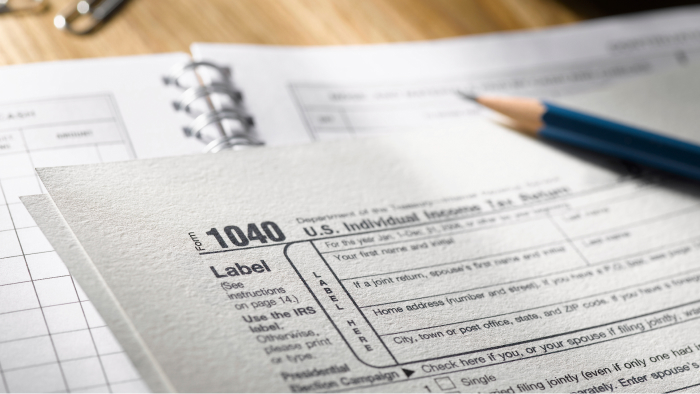How long to keep your tax, financial and legal documents
Read, 4 minutes
Key takeaways
- Documents that define your personal and financial life—like your birth certificate, marriage license and tax returns—should be kept forever.
- Hold on to records that support information on your tax returns for seven years.
- Digitizing and shredding your paper documents can cut the risk of fraud and identity theft.
Knowing how long to keep financial records and other important documents can protect your personal information and streamline your recordkeeping. And once you’ve figured that out, what document storage options should you consider? This guide will help answer your questions on what to save, where to store it and how to shred what you no longer need.
How long should I keep tax records?
Your federal income tax returns are important parts of your financial history and should be kept forever. Beyond reporting to the IRS, you may need them if you apply for a mortgage, other major loans or seek financial assistance for college. You’ll want to keep a permanent electronic or hard copy of each year’s federal tax return(s) (including any amendments) and any payments you make to federal and state government.
Records that back up information in your federal income tax returns should be kept for seven years after submitting your return. Generally, that should cover the period that the IRS has to examine your return and ask for supporting documentation—including IRS Forms W-2 and 1099, bank and brokerage statements, tuition payments and charitable donation receipts. If you’re self-employed, you may also need to save utility, cable and cell phone bills for substantiation purposes, if applicable.
Quick tip
Even if your records are no longer needed for tax purposes, you may want to verify that the documents aren’t needed for other important financial institutions. Your insurance company or a creditor may have different record-keeping requirements than the IRS.
How long should I keep financial and legal documents?
Some things you’ll need to hold on to for your whole life and others for just a few months. In addition to tax returns, forever documents include those that define your personal and financial identity as well as those you may need in their original form, rather than electronic or photocopied. It’s also a good idea to hold on to records of major financial events, such as legal filings or inheritances.
Certain original documents that are hard to replace should be kept throughout your life. Keep the originals in a secure but convenient place that protects them from damage, loss and theft, such as a home safe.
- Birth and death certificates
- Social Security cards
- Marriage licenses
- Divorce papers
- Military discharge documents
- Life insurance policies (current policies)
- Wills and living wills
- Passports (current and expired)
- Citizenship papers
Keep records pertaining to your house, vehicle, and other major purchases and investments for as long as you own the assets. For your house, this includes the deed, mortgage and closing documents, as well as receipts for improvements and remodeling. For your car, this includes the title, registration, proof of insurance, warranty and service records.
Keep either a digital or hard copy of your monthly bank and investment statements going back the past 12 months. It’s a good idea to keep your digital copies stored online if you choose to go paperless. You should also hold on to pay stubs so that you can use them to verify the accuracy of your IRS Form W-2 when tax season arrives. You can dispose of bank withdrawal and deposit slips after verifying them with your monthly statement.
How long should I keep medical records?
Hold on to medical bills for a year, unless there’s an ongoing insurance dispute or you claim a tax deduction for medical expenses. Keep health insurance policies for as long as the insurance is active. Records relating to your health—conditions, treatments, prescriptions, lab tests, family history—should be kept forever. It’s a good practice to have a separate file for records from the past year for quick reference in an emergency.
Should I digitize paper documents?
Digitizing important documents is a good way to back up your paper documents. It makes them easier to store, organize and share, while also protecting them from floods, fires, theft and misplacement. Start with the legal and financial documents that you need to keep forever and would be hard to replace. Tax records, the deed to your home and title for your car are good to include. Records from your bank or brokerage are probably already digital, so you don’t need to do anything with them. You can easily convert paper to digital by using a mobile scanning app or the scan function on a printer. You can also hire a service to do it for you.
Article continues below
Related content
How should I handle document storage?
You can store digital records on your computer’s hard drive, an external hard drive, a cloud service, or all three. The records should be password protected. Use complex passwords to keep your account information safe. Make sure your username and password are different from the ones you use for personal email, online merchants and social media accounts. Protecting your computer with antivirus software is also a good idea.
For physical documents, designate a safe, out-of-the-way place in your home that protects them from damage or theft. Consider a personal safe or bank safe deposit box for your most important documents.
What should my shredding strategy be?
You’ll put yourself at risk of fraud or identity theft if you simply throw away private documents, such as financial statements. Invest in a cross-cut shredder that will eliminate all traces of your personal information or search for free shredding events in your community. Plan to shred all paperwork that includes account numbers, birth dates, Social Security numbers, personal identification numbers and signatures. To be extra safe, shred documents with your name, address, phone number and email address. Beyond financial documents, this includes junk mail, credit card pre-approval letters, prescription labels, resumes, and airline boarding passes and baggage tags.


















